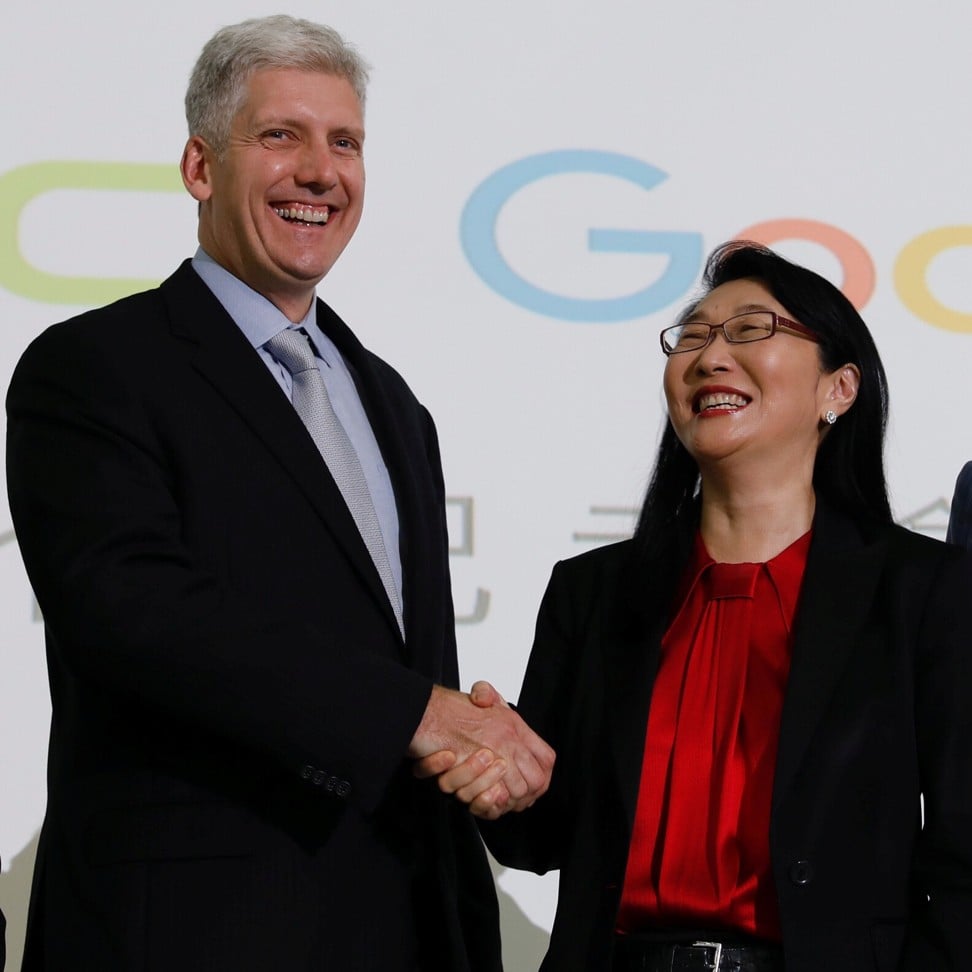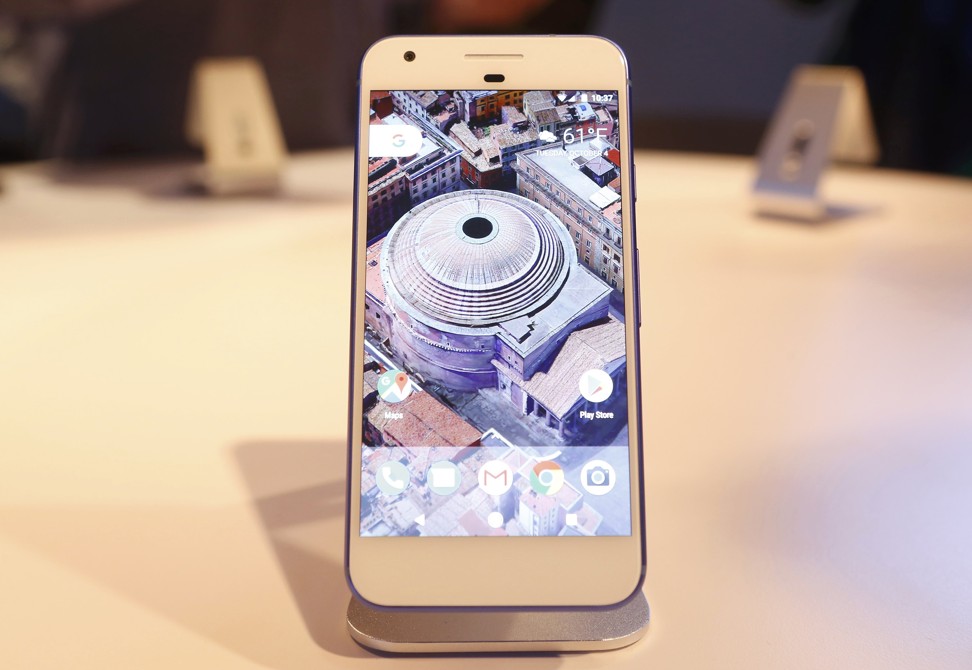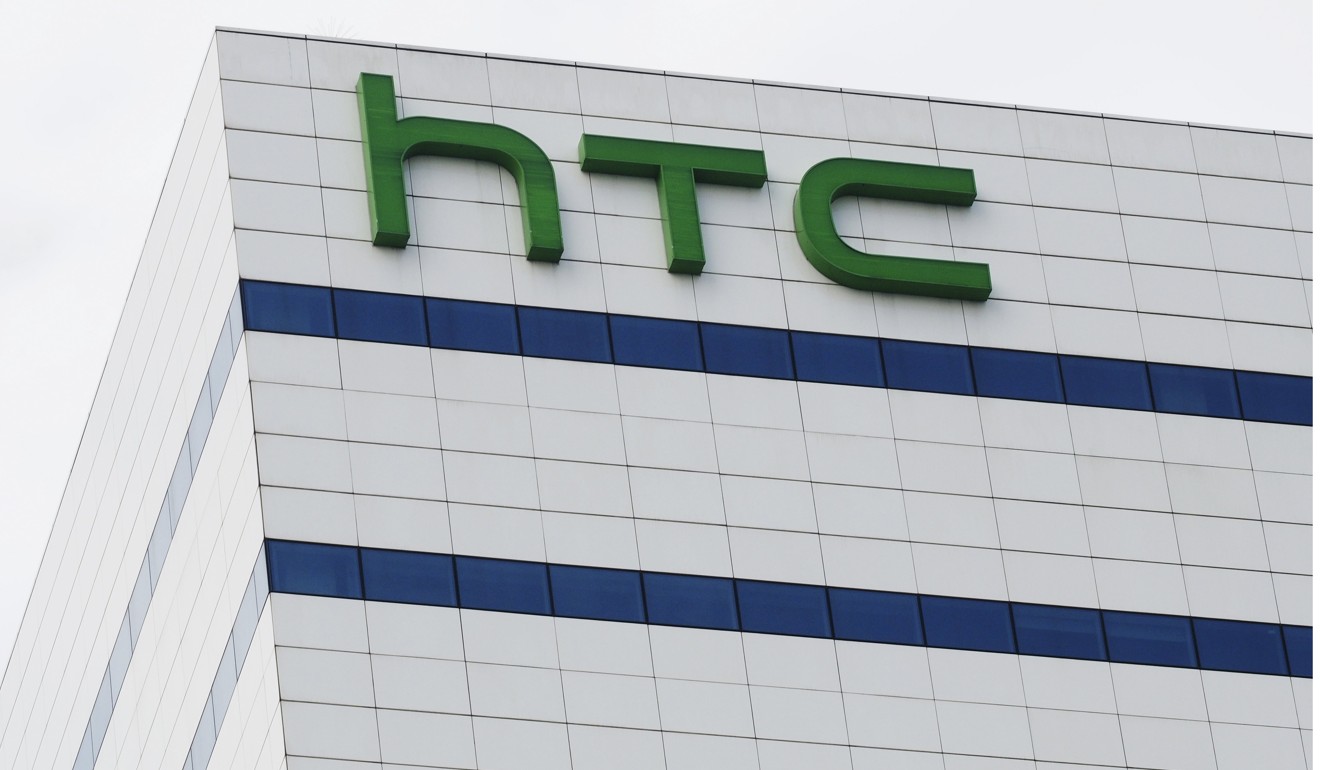
Google bets on hardware growth in US$1.1 billion deal with Taiwan’s HTC
The global internet giant’s agreement to take on HTC design and engineering staff is expected to advance innovation in its line of smartphones and smart devices
Google, the world’s biggest internet company, is ratcheting up efforts to grow its hardware business to compete with Apple, Samsung Electronics and major Chinese makers of smart devices through a US$1.1 billion deal with struggling Taiwanese smartphone supplier HTC Corp.
In joint announcement on Thursday, the two companies said about 2,000 HTC employees would formally join Google to develop smartphones and other devices. Many of these HTC staff are already involved in making Google’s Pixel-brand premium smartphones.
In addition, Google will receive a non-exclusive licence for HTC’s intellectual property. The transaction is expected to close early next year.
Rick Osterloh, the senior vice-president for hardware at Google, said in a blog post that the agreement with HTC would fuel even more product innovation.
“Last fall, we introduced our first family of ‘Made by Google’ products, including Pixel smartphones, Google Home, Google Wifi, Daydream View and Chromecast Ultra, and we’re preparing to unveil our second generation of products on October 4,” Osterloh said.
“We’re excited about the 2017 line-up, but even more inspired by what’s in store over the next five, 10, even 20 years.”

Research firm IDC estimated Google has shipped about 2.8 million Pixel smartphones since the fourth quarter of last year.
“Given that Google is focused on the high-end smartphone market, where handsets cost around US$700, I don’t see its HTC deal affecting most of the Chinese smartphone brands which sell products below that price,” IDC research manager Tay Xiaohan said. “Google will be a seen as a strong competitor against the likes of Apple and Samsung.”
Mo Jia, a Shanghai-based analyst at research firm Canalys, said HTC may be a laggard in the global smartphone industry, but the company “still has its sales channels and marketing experience in mainland China, which would be very useful for Google when its Pixel smartphone enters this market in future”.

The deal with HTC followed Google’s US$2.9 billion sale of smartphone maker Motorola Mobility to personal computer powerhouse Lenovo Group in 2014.
Google, a subsidiary of American multinational conglomerate Alphabet, had bought Motorola Mobility for US$12.5 billion in 2011.
Neil Shah, the research director for devices and ecosystems at analyst firm Counterpoint, said Google’s Motorola acquisition became “a drag on its revenue and performance”, and resulted in a backlash from hardware partners using the Android mobile operating system. So Google divested Motorola, but kept its portfolio of intellectual property.

“HTC, known for its quality as well as research and development expertise, is a natural fit for Google. It has been Google’s partner since 2008, when Google launched its first Android phone, G1, in the United States,” Shah said.
He pointed out that Google’s investment in HTC would provide the US firm’s long-standing hardware partner “with another lifeline to build its business – focusing on a narrow portfolio and becoming a leaner, agile and better operation”.
Alvin Wang Graylin, the China president at HTC’s Vive virtual reality system business, expected the deal with Google to fuel HTC’s sharpened focus on the virtual and augmented reality devices industry.
Additional reporting by Meng Jing in Beijing and Li Tao in Shenzhen

